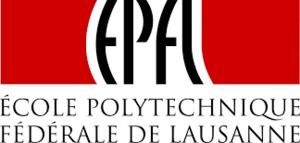Federal Institute of Technology in Lausanne (EPFL) is offering free online course on Exploring Humans' Space: An Introduction to Geographicity. This ten-week course aims to help you feel comfortable with the notion of space.
In this social science course, applicants will explore how geography, cartography, urbanization and spatial justice play a role in shaping the notion of human space. The course will start on September 26, 2016.
Course At A Glance
Length: 10 weeks
Effort: 4 hours pw
Subject: Social Sciences
Institution: Federal Institute of Technology in Lausanne and edx
Languages: English
Price: Free. Add a Verified Certificate for $50
Session: Course starts on September 26, 2016
Providers' Details
EPFL is the Swiss Federal Institute of Technology in Lausanne. The past decade has seen EPFL ascend to the very top of European institutions of science and technology: it is ranked #1 in Europe in the field of engineering by the Times Higher Education (based on publications and citations), Leiden Rankings, and the Academic Ranking of World Universities.
About This Course
How do we understand the notion of space? How have urbanisation, mobility, digital spaces, and globalization changed the way we perceive it? This course aims to help you feel comfortable with the notion of space. The simplest way to understand it is to connect your daily life, your perceptions and your practices to the concepts of contact and remoteness. In SpaceX, we will explore together the city, urbanisation, urbanity, and urbanism, the individual actor in a globalising World, the emerging digital spatialities, the space-time couple, and the complex relation between societies and bio-physical worlds. Moreover, we will see that cartography is a powerful tool. By the end of the course, we will enable you to not only read but also draw your own maps. Finally, the issues of action on space through spatial agency and spatial justice will be addressed. In each of the nine sessions, a recognised specialist will be filmed in a particular place—a ‘thinking place'—throughout the World, to help us simultaneously inhabit and understand space.
Why Take This Course?
This is a free online course. This MOOC will be offered with Video Transcripts in English. Applicants can get a verified certificate.
Learning Outcomes
- A greater understanding of space as perception and daily-life practice.
- How to read and draw maps to gain a better understanding of space and spatiality.
- How space is a useful tool to address digital worlds, urbanisation, and globalisation.
- How geography connects social sciences.
- An overview of important spatial agency and spatial justice topics and issues.
Instructors
Jacques Lévy
Jacques Lévy is a geographer and an urbanist. His major topics are epistemology of social sciences, social theory of space, urbanity, globalisation, Europe, and cartography.
Farzaneh Bahrami
Farzaneh Bahrami is a PhD Student studying urbanism and urban sciences at EPFL.
Dr. Boris Beaude
Boris is a researcher in geography, social sciences, and the Internet at EPFL.
Dr. Barbara Laurent-Lucchetti
Barbara Laurent-Lucchetti is a postdoctoral candidate in social sciences and urbanism at EPFL.
Dr. Ogier Maitre
Ogier is a postdoctoral candidate in computer science at EPFL.
Hélène Noizet
Hélène is a professor of history at Paris 1.
Dr. Patrick Poncet
Patrick is a researcher in geography and cartography at EPFL.
Requirements
None
How To Join This Course
- Go to the course website link
- Create an edX account to SignUp
- Choose “Register Now” to get started.
- EdX offers honor code certificates of achievement, verified certificates of achievement, and XSeries certificates of achievement. Currently, verified certificates are only available in some courses.
- Once applicant sign up for a course and activate their account, click on the Log In button on the edx.org homepage and type in their email address and edX password. This will take them to the dashboard, with access to each of their active courses. (Before a course begins, it will be listed on their dashboard but will not yet have a “view course” option.)
